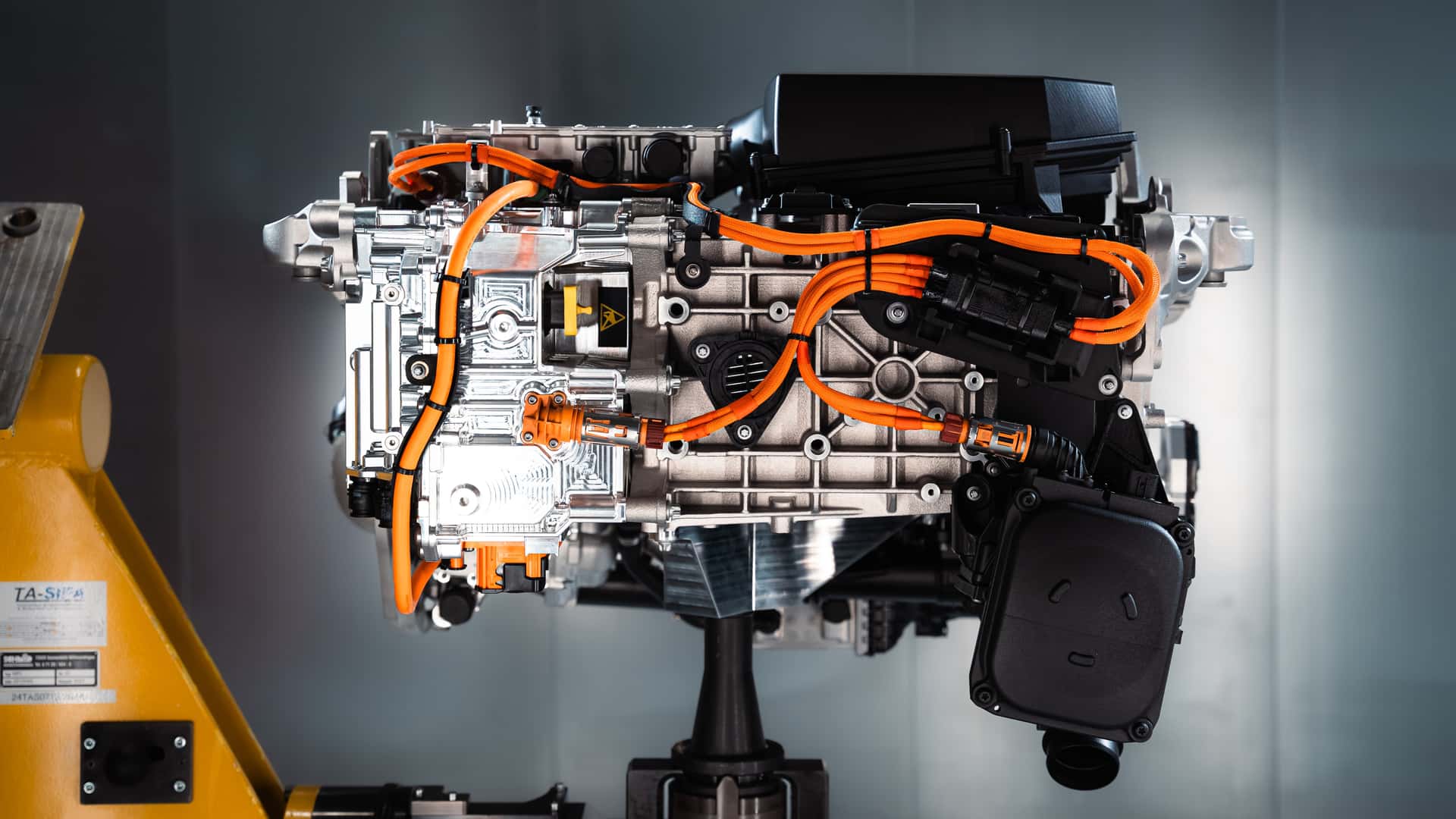
BMW has started building prototypes of its third-generation hydrogen fuel-cell system. It's in preparation for the powertrain's series production, scheduled to begin in 2028 for an unspecified vehicle.
The new fuel-cell system is about 25 percent smaller due to an increase in power density. The automaker says the system will have a "high degree of integration" with future vehicle architectures, which will "make it possible to offer customers a variety of drive system variants" in the future.
We envision the hydrogen powertrain integrating with BMW's Neue Klasse models, but this has not been confirmed. It's unclear which car will feature the new powertrain first, but BMW's second-gen system currently powers a small fleet of prototype X5 crossovers.
If that's any indication of the company's future, the new propulsion system may power a version of the next-generation X5, which is expected to arrive in 2026. If that's the case, it'll likely be able to integrate with the company's CLAR platform.

The engine should integrate with both architectures. The automaker said it is preparing a hydrogen-specific BMW Energy Master, an in-house developed interface between the battery and the vehicle's other systems. The Energy Master is set to enter production later this year for BMW's first Neue Klasse cars.
BMW also claims the new system will be "substantially more efficient" than its predecessor, but the automaker didn't provide any figures. The new system has an increased range, a higher output, and lower energy consumption than the second generation.
BMW & Toyota Partner On Hydrogen
The new system is part of a collaboration between BMW and Toyota. When BMW wanted to build a hydrogen vehicle over a decade ago, the 535iA, it sourced the entire system from the Japanese automaker. BMW took more control over the second generation, designing the overall system itself while Toyota still supplied the fuel cells.

These power the automaker's current iX5 prototypes, a fleet of fewer than 100 units that have been in service since 2023. The second-gen system makes 396 horsepower in the crossover, which has a range of up to 313 miles on the WLTP.
While some automakers have abandoned hydrogen, many others have not. There is a lack of fueling stations across the country, but companies still see hydrogen as a cleaner alternative to gasoline that offers a similar refueling experience .
Source: BMW








